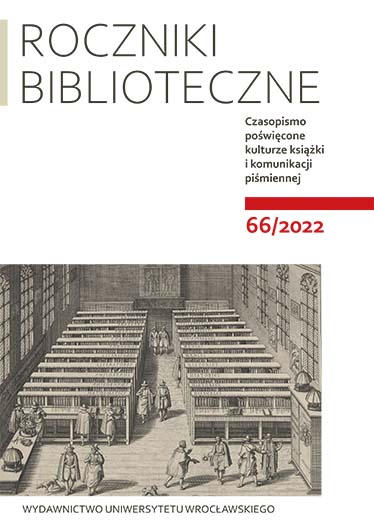

Articles and materials

Sebald Sauermann’s album amicorum — from the collections of the former Prussian State Library in Berlin, preserved in the Jagiellonian Library in Kraków — is one of the few albums of friendship of Wrocław inhabitants that have survived from the second half of the 16th century. So far, however, it has not been used in research on such Silesian albums, including the ones from Wrocław. The content of this album, university records, and other sources make it possible to reconstruct Sauermann’s educational journey and the circle of his acquaintances and friends. He came from a patrician family. His social status and family situation enabled him to make a long-term educational journey through Western Europe. Between 1578 and 1586 he was, for example, in Leipzig, Wittenberg, Basel, Zurich, Geneva, Paris and the British Isles, studying and visiting new places. His trip to the British Isles was unusual, as they were not a popular destination at that time. The route of this educational expedition stemmed from his family traditions, both from the side of his mother and father. Sauermann’s journey should be also viewed against a broader backdrop of educational journeys made by patricians from Wrocław in the second half of the 16th century. Young Sauermann got to know the contemporary scientists whose works were often read by the Wrocław bourgeoisie. Moreover, he met many students from Central, Western and Northern Europe. His album of friendship contains not only autographs in various languages but also painted ornaments of a heraldic character. It represents the group of “traditional” albums, which did not contain figural representations. From the similarities in style, it can be deduced that the coats of arms decorating autographs were made in larger groups in the city where he received a given autograph and funds to order decorations. This educational journey was also an opportunity for him to collect books, some of which have been identified with the use of catalogues. Sebald Sauermann should be seen as a representative of the old Wrocław patriciate with humanistic aspirations. The material evidence of Sauermann’s interests is his album and the remnants of his book collection. There was also an epitaph which he funded for his parents in the church of St. Elizabeth in Wrocław, yet it has not survived.